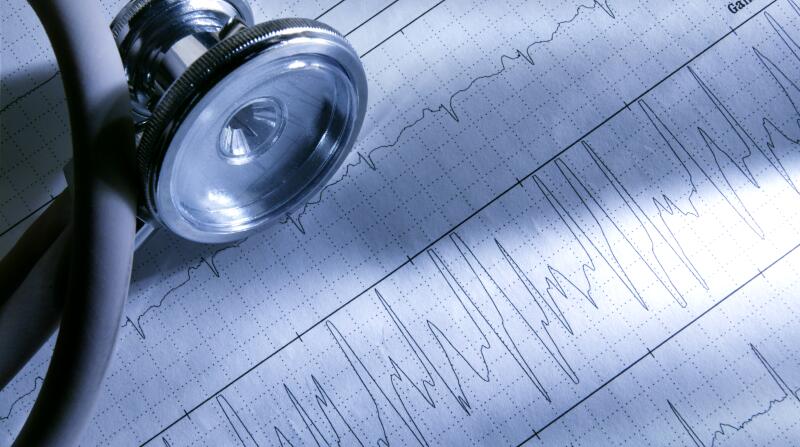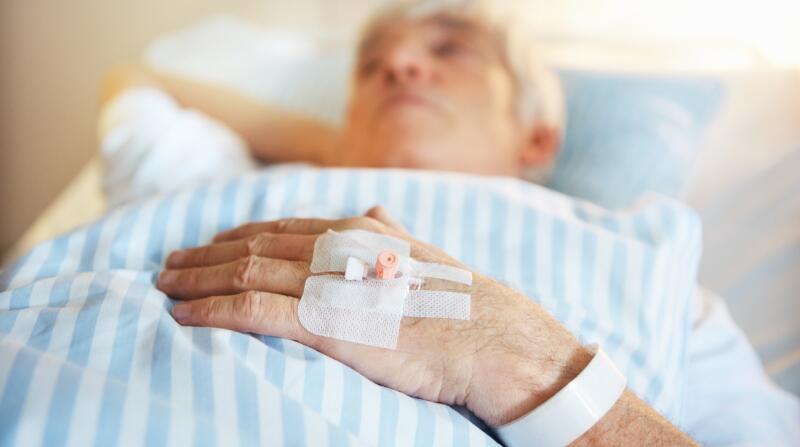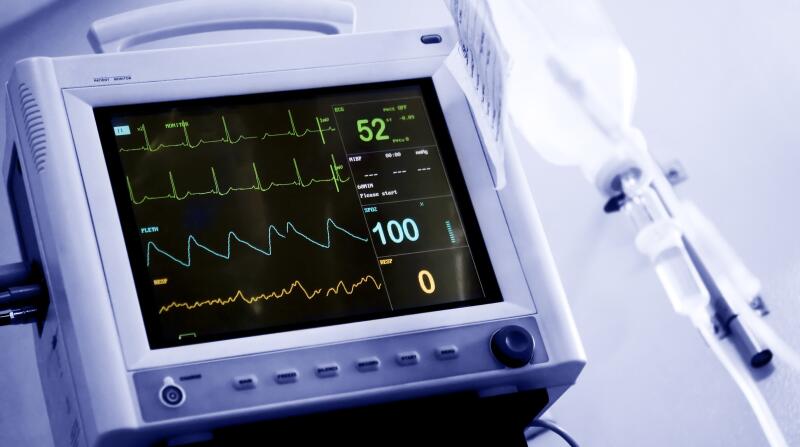8 Things to Know About Cardioversion

Medically Reviewed By William C. Lloyd III, MD, FACS
Written By Sarah Lewis, PharmD on August 31, 2020
-
 Learn the basics of cardioversion for abnormal heartbeats.Cardioversion treats cardiac arrhythmias, or abnormal heartbeats. It uses medicines or low-energy electrical shocks to restore a normal heartbeat. Many times, cardioversion is an elective procedure. In some cases, it is an emergency treatment. But it’s not for everyone with an abnormal heartbeat.
Learn the basics of cardioversion for abnormal heartbeats.Cardioversion treats cardiac arrhythmias, or abnormal heartbeats. It uses medicines or low-energy electrical shocks to restore a normal heartbeat. Many times, cardioversion is an elective procedure. In some cases, it is an emergency treatment. But it’s not for everyone with an abnormal heartbeat. -
 1. Cardioversion is one option for atrial fibrillation.Atrial fibrillation—or afib—is a common arrhythmia that doctors treat with cardioversion. Others include atrial flutter and some fast ventricle rhythms. But not everyone with an abnormal heartbeat needs the procedure. It may be an option if you have symptoms that your medicines aren’t controlling. Symptoms include dizziness, fainting, shortness of breath, fatigue, and chest pain. People having sudden, life-threatening arrhythmias may need emergency cardioversion.
1. Cardioversion is one option for atrial fibrillation.Atrial fibrillation—or afib—is a common arrhythmia that doctors treat with cardioversion. Others include atrial flutter and some fast ventricle rhythms. But not everyone with an abnormal heartbeat needs the procedure. It may be an option if you have symptoms that your medicines aren’t controlling. Symptoms include dizziness, fainting, shortness of breath, fatigue, and chest pain. People having sudden, life-threatening arrhythmias may need emergency cardioversion. -
-
 2. There are two different types of cardioversion.The first type is pharmacologic—or chemical—cardioversion. This form uses IV (intravenous) or oral medicines to suppress the abnormal heartbeats. The other type is electrical cardioversion. This type uses an electrical shock to interrupt the abnormal heartbeats. The heart’s electrical system can then start a normal rhythm.
2. There are two different types of cardioversion.The first type is pharmacologic—or chemical—cardioversion. This form uses IV (intravenous) or oral medicines to suppress the abnormal heartbeats. The other type is electrical cardioversion. This type uses an electrical shock to interrupt the abnormal heartbeats. The heart’s electrical system can then start a normal rhythm. -
 3. You’ll most likely have cardioversion in a hospital.Pharmacologic cardioversion can be an inpatient or outpatient procedure. It depends on the specific medicine and your symptoms and underlying heart problem. Electrical cardioversion takes place in a hospital. It requires admission to an ICU (intensive care unit), recovery room, or other area equipped to handle heart procedures.
3. You’ll most likely have cardioversion in a hospital.Pharmacologic cardioversion can be an inpatient or outpatient procedure. It depends on the specific medicine and your symptoms and underlying heart problem. Electrical cardioversion takes place in a hospital. It requires admission to an ICU (intensive care unit), recovery room, or other area equipped to handle heart procedures. -
 4. You may have sedation during electrical cardioversion.For pharmacologic cardioversion, doctors give an IV or oral medicine. They monitor the heart during the process. Electrical cardioversion is more complex. The shock can be uncomfortable, so sedation is necessary. Both a cardiologist and an anesthesia specialist will be present during the procedure. The team will monitor your heart rate, breathing, and other vital signs during the process. Sometimes, multiple shocks are necessary to restore normal heart rhythm.
4. You may have sedation during electrical cardioversion.For pharmacologic cardioversion, doctors give an IV or oral medicine. They monitor the heart during the process. Electrical cardioversion is more complex. The shock can be uncomfortable, so sedation is necessary. Both a cardiologist and an anesthesia specialist will be present during the procedure. The team will monitor your heart rate, breathing, and other vital signs during the process. Sometimes, multiple shocks are necessary to restore normal heart rhythm. -
 5. You doctor will help you manage the risks of cardioversion.Cardioversion can effectively treat abnormal heartbeats, but there are risks. They include worsening arrhythmia, skin burns, blood clots, and stroke. To guard against the risk of blood clots and stroke, doctors prescribe blood thinners—anticoagulants—for 3 to 4 weeks before the procedure. In some cases, doctors may recommend a special ultrasound test to check for blood clots in the heart.
5. You doctor will help you manage the risks of cardioversion.Cardioversion can effectively treat abnormal heartbeats, but there are risks. They include worsening arrhythmia, skin burns, blood clots, and stroke. To guard against the risk of blood clots and stroke, doctors prescribe blood thinners—anticoagulants—for 3 to 4 weeks before the procedure. In some cases, doctors may recommend a special ultrasound test to check for blood clots in the heart. -
-
 6. Most people go home a few hours after the procedure.Staying overnight in the hospital is not necessary in most cases. People generally go home a few hours after the procedure. It’s a good idea to take it easy for the rest of the day. Medicines to prevent repeat arrhythmias may be necessary after cardioversion. Doctors may also prescribe anticoagulants for several weeks afterwards to prevent blood clots. Remember that cardioversion is part of an overall treatment plan. It’s important to keep all of your follow-up appointments.
6. Most people go home a few hours after the procedure.Staying overnight in the hospital is not necessary in most cases. People generally go home a few hours after the procedure. It’s a good idea to take it easy for the rest of the day. Medicines to prevent repeat arrhythmias may be necessary after cardioversion. Doctors may also prescribe anticoagulants for several weeks afterwards to prevent blood clots. Remember that cardioversion is part of an overall treatment plan. It’s important to keep all of your follow-up appointments. -
 7. You have other options if cardioversion doesn’t work.Overall, the success rate for cardioversion is about 75%, meaning the heart resumes a normal rhythm. When cardioversion doesn’t keep the heart in a normal rhythm, there are other options. They include catheter procedures, pacemakers, implanted cardioverter defibrillators, and surgery. Consider getting a second opinion if cardioversion fails. Second opinions can give you more information about your diagnosis and confidence in your treatment choice.
7. You have other options if cardioversion doesn’t work.Overall, the success rate for cardioversion is about 75%, meaning the heart resumes a normal rhythm. When cardioversion doesn’t keep the heart in a normal rhythm, there are other options. They include catheter procedures, pacemakers, implanted cardioverter defibrillators, and surgery. Consider getting a second opinion if cardioversion fails. Second opinions can give you more information about your diagnosis and confidence in your treatment choice. -
 8. Understand your entire treatment program.Not everyone with an arrhythmia needs cardioversion. It may be a good option for people whose medicines aren’t controlling their symptoms. Your doctor will help you understand which type of cardioversion is best for you. Make sure you understand your entire treatment program, including medicines that you need afterwards. In most cases, cardioversion is successful, but you still have options if it fails to help your heart.
8. Understand your entire treatment program.Not everyone with an arrhythmia needs cardioversion. It may be a good option for people whose medicines aren’t controlling their symptoms. Your doctor will help you understand which type of cardioversion is best for you. Make sure you understand your entire treatment program, including medicines that you need afterwards. In most cases, cardioversion is successful, but you still have options if it fails to help your heart.
8 Things to Know About Cardioversion















